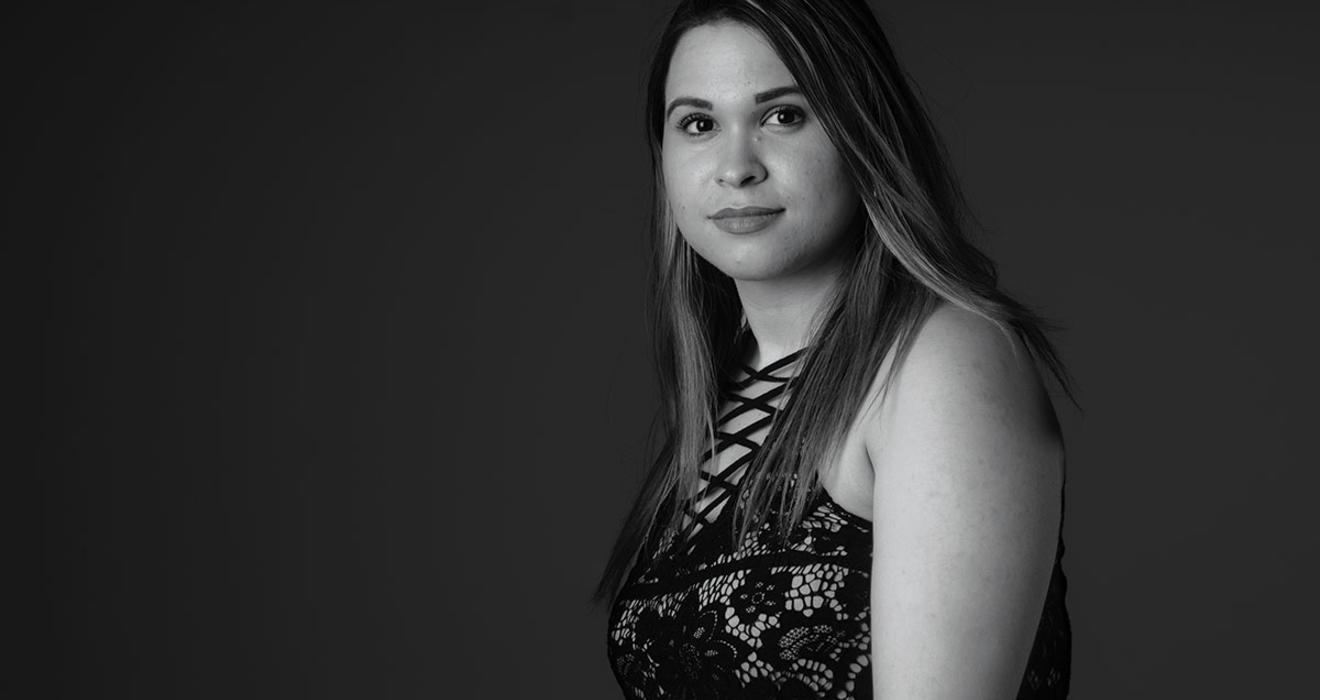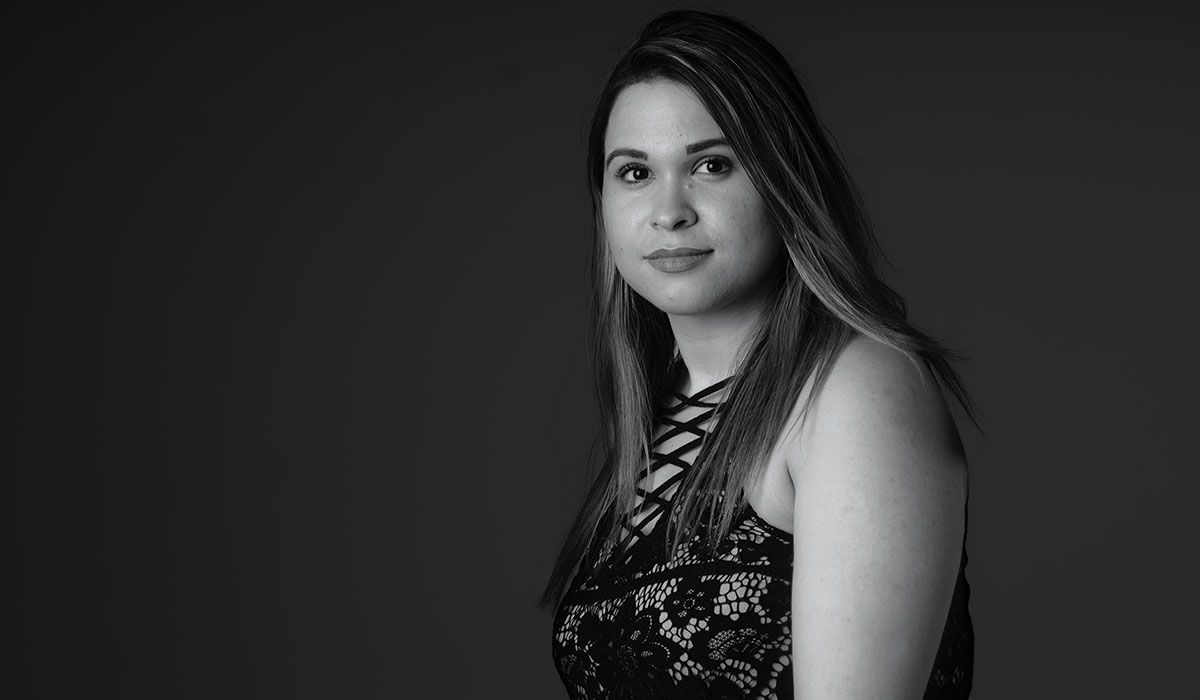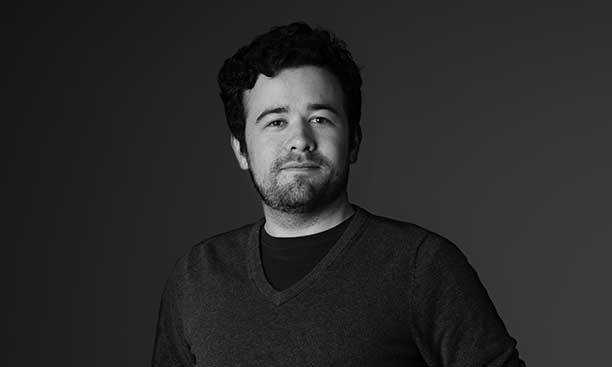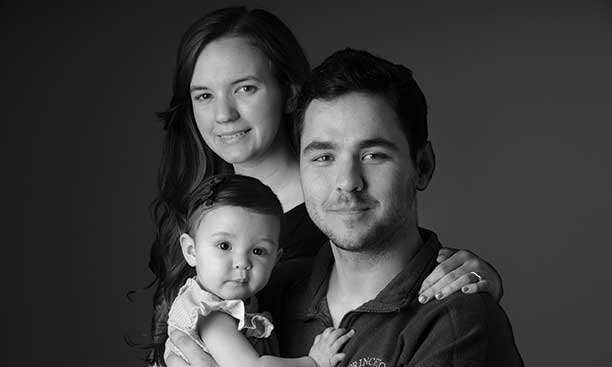
In January 2016 the University announced it would begin accepting transfer students for the first time since 1990, with a goal of attracting more applicants from low-income, military, or community-college backgrounds. The response was strong: Princeton received 1,429 transfer applications during the first admissions cycle and offered admission to 13 — an admit rate of less than 1 percent.
Of the 13, nine matriculated and have just finished their first year. Three were admitted as first-year students; the others, as sophomores. The students live in the residential colleges or graduate housing, and at least two have joined eating clubs. “Everything has gone very well — the students have attacked their work with enthusiasm and dedication, and they’re doing quite well academically,” says Keith Shaw, the director of Princeton’s transfer, veteran, and nontraditional-student programs. “They face challenges like any Princeton undergraduate, and we want that. It wouldn’t be Princeton if it were easy.”
PAW sat down with three of the students in the spring to hear about what life is like for the University’s first transfer students in almost 30 years.
Allie Wenner is a former PAW writer.
DANIELA ALVAREZ ’21 was initially disappointed to learn that she had been assigned to a single-person dorm room in Whitman College. Alvarez, 21, had reservations about the transition to Princeton from her hometown near Miami, where she lived with her mother, a cook at a Cuban restaurant. She thought that having a roommate might help her adapt.
“I remember thinking, ‘How am I going to function in very quiet places?’” Alvarez says. “I function with noise!”
Since then, Alvarez, who immigrated to Florida from Cuba when she was 4, has grown to appreciate the privacy of her single room and has become accustomed to seeing pine trees instead of palm trees. But she hasn’t forgotten where she came from — she makes Cuban coffee, takes Spanish classes, and joined Quadrangle Club because she found it to be one of the few places on campus that play Spanish music. “Also, one day I went to get a meal there and they had fried plantains,” she says. “I immediately thought, ‘You have my heart!’”
Before coming to Princeton, Alvarez was enrolled in the honors program at Miami Dade College’s North Campus, a five-minute drive from home. She was attracted to Princeton’s small classes and internship opportunities abroad. Though she had started college in the fall of 2016 with an interest in statistics, she switched her focus to politics after volunteering for Hillary Clinton’s campaign, and she plans to major in the Woodrow Wilson School at Princeton. A statistics class has been especially challenging, but she has frequented study halls at the McGraw Center for Teaching and Learning and the Writing Center, which have been helpful. She also adjusted her study habits to meet the University’s rigorous academic demands.
“I’m the kind of person who likes to do all of my readings and take detailed notes,” Alvarez says. “But I quickly learned that I wouldn’t have time to do that for every assigned reading. I had to learn to prioritize.”
Alvarez sometimes was lonely during her first semester. Entering Princeton as a sophomore, she felt as though many people already had formed friend groups. She also is one of only two women (along with Frelicia Tucker ’22) in Princeton’s first group of transfer students. “It hasn’t been a big thing — everyone in the program has treated each other very well, and there’s never been an issue. I just want to see more girls ... I wasn’t expecting only two.”
Last fall, the transfer students saw each other fairly frequently; by the spring, they were more focused on extracurricular, academic, and family demands, Alvarez says. They received an overwhelmingly positive response from others in the community, she says: Students and professors have been welcoming and curious, and she’s received more support from administrators than she had expected.
The first in her family to attend college in the United States, Alvarez plans to go to law school and become an immigration lawyer.
“One of the reasons I decided to come here was that Princeton’s transfer program targeted low-income and community-college students and veterans,” Alvarez says. “I really liked that Princeton was inclusive of these communities. For community-college students and veterans, we’re transferring because it’s a new pathway for us.”
VINNY WAGNER ’21 lived on three continents before coming to Princeton: He was born in São Paulo, Brazil, but moved to the United States with his mother as a baby. They lived as undocumented immigrants until Wagner was in high school, when they returned to Brazil, and the family lived in poverty. After Wagner graduated from high school in 2013, he taught English in Russia and then legally immigrated to Lake Worth, Fla., with his mother in 2015.
That year, Wagner was accepted to the University of Florida but could not attend: His permanent-resident status had not been finalized, and his family could not afford the out-of-state tuition. The following year, he applied to about 10 private schools with generous financial-aid policies, but was rejected across the board. He tried again in 2017, with the same result. Wagner says he didn’t realize how competitive the process was in the United States.
He enrolled at Palm Beach State College, a community college near his family home. He worked hard during the first year, got good grades, and secured a Department of Energy-sponsored internship at the Princeton Plasma Physics Laboratory during his second year, arriving at the lab in the spring of 2018. That’s when he heard about Princeton’s transfer program and decided to apply. A few months later, Wagner received his acceptance — along with admission offers from Williams College and Rice University.
“Education is the one thing that could get my family out of poverty,” Wagner says. “That was my one goal. ... And I wanted to go to school; I love this kind of environment.”
A Princeton sophomore studying computer science, Wagner hopes to work in computational biology. He loves Princeton — “by far” his hardest academic experience yet. He has drawn on the support of the Writing Center and the McGraw Center.
“I knew it would be hard here, and it definitely is,” Wagner says. “It can get frustrating sometimes, but every time I finish an assignment, I’m struck with this inexplicable desire to move on to the next one to see what challenge it’ll bring this time.” He enjoys his classes, particularly his computer-science courses.
Despite the academic demands, Wagner has had time to discover new passions, including archery (he joined the Archery Club with no previous experience). Next year, he hopes to try swimming and take classical guitar lessons.
At 24, Wagner is older than most of his fellow students at Whitman College, and his closest friend is another transfer student who lives in his dorm. He enjoys the “older brother” role he’s assumed on his floor and is happy to give advice when requested. He believes his age and life experiences have given him perspective to better manage the stress of college. “Freshmen come in with the sense that they have to be the best in their class,” Wagner says. “In high school, they were the best in their class. Now they’re in an environment where everyone is equally ‘the best.’ It’s incredibly stressful for them.”
“We’re in the same spot, but we’re in different phases of life,” Wagner says of his fellow students. “They’re starting this new life and leaving their parents’ houses for the first time. They’re confused, and they miss their parents, which is perfectly normal. I’m just happy to be there and to support them.”
The first day of classes was memorable for THOMAS JOHNSON ’22, but not because it marked his start as a Princeton student. On Sept. 12, his wife, Grace, gave birth to their daughter, Adeline.
“No, I did not go to class that day,” Johnson says, laughing. “My professors were great about giving me the time I needed and making sure I was supported. We ended up changing Addie’s middle name to Ivy, as an homage to her being born on the first day of classes.”
Johnson, 26, came to Princeton after spending four years as a medic in the Army. During his service, he was deployed to Afghanistan and married Grace; when his commitment ended in 2015, he attended Pikes Peak Community College in Colorado Springs, Colo., earning an associate’s degree. Johnson then contacted an organization called Service to School, which helps veterans gain admission to competitive colleges.
An adviser there told him about Princeton’s new transfer program, and Johnson knew he wanted to apply. “I wanted to push myself as hard as possible,” he says.
Princeton allowed the Johnsons to move in to their apartment in the Lakeside graduate-housing complex early so that Grace, then 34 weeks pregnant, would have time to find a doctor in the area. (The couple also have two dogs.) Staff members at Butler College — Johnson’s residential college — have encouraged Grace and Addie to stop by for events and to spend time with the community. “Princeton has been really great at making sure that my wife feels included,” Johnson says. The couple also have become friendly with other veterans and residents of the Lakeside complex.
Perhaps unsurprisingly, the biggest challenge for Johnson has been learning to balance academic commitments and family life. Johnson, who always had prioritized his schoolwork, says he now forgoes some study time in favor of family time. He tries to keep weekends open at all costs, unless it’s midterms or finals period.
“I think that a lot of the [traditional students] feel like they have to fit their personal lives into Princeton, because Princeton is their identity,” Johnson says. “For me it’s kind of the opposite: I have to fit Princeton into my life with my family because that’s the whole reason why I came here — to support and be a part of my family.”
Johnson’s favorite spring-term class was a lighting-design course, though he plans to major in computer science. His toughest course is physics, and he has received help at the McGraw Center and from his professors during office hours. “Luckily I’ve had great professors who are willing to take the time to make sure I understand the material and realize that I don’t have the same background as most of my peers,” he says.
Despite his hectic schedule, he’s found time for extracurriculars: He serves as social chair for the 11-member Princeton Student Veterans Alliance, writes for The Daily Princetonian, and is alumni-affairs chair for the Undergraduate Student Government.
In some ways, he notes, Princeton alumni remind him of veterans: “Once you get out, you have that network that connects you to other veterans. Feeling the same thing here at Princeton was very surprising — it’s like I have this whole other network of people who want to see me succeed and help me out.”
This is an updated version of a story from the July 10, 2019, issue.









2 Responses
Norman Ravitch *62
6 Years AgoTransfer Questions
Correct me if I am wrong, but I assume that Princeton, like many private schools from grade school upward, wants to feel it has educated a student fully along its desired lines. Transfers can only be partially Princetonian, I guess. Is this snobbery? Is this legitimate control of one's brand? I think a little of both. It would be nice to think that having spent four years fully at Princeton meant something Princetonian, not so? But there are plenty of four-year Princeton grads who later in life show themselves to be mediocre, or criminal, or stupid, or embarrassing, along with the many one can be proud of. So I would not know whether admitting transfers is good or not.
Perhaps the real question is this: Why not make a Princeton education more demanding? For centuries it was very undemanding, and only after perhaps WWII did it become at least respectable and no longer a finishing school for male elite offspring. If Princeton really made its students work like dogs, perhaps this problem would resolve itself. Forgive my misanthropy. At the age of 82, it comes naturally.
George M. Dawson ’59
6 Years AgoA Transfer Student’s Experience
Congratulations on the new transfer students (feature, July 10): a well-thought-out approach.
I transferred into Princeton as a junior. My first two years were at Rice University. I think there were eight or so of us who transferred in from various schools. I never met any of them. There was no support network. However, there was a special bicker. Someone in the administration told me that Rice was the only school below the Mason-Dixon line from which they would accept transfers. I think the fact that Princeton had earlier accepted me as a freshman and that my brother graduated in ’57 helped quite a bit.
I just parachuted in and tried to survive. It was one of the smartest moves I ever made.